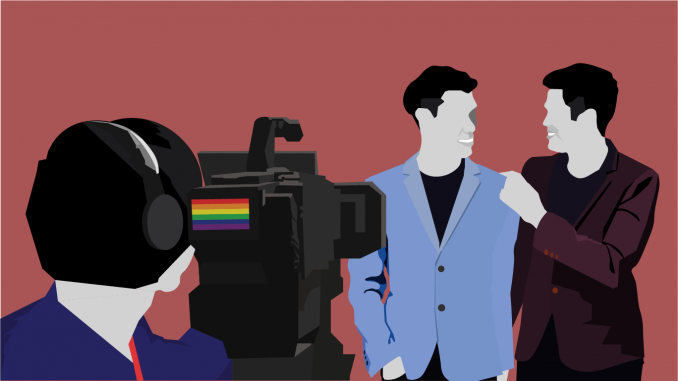
I was sitting at my office desk when I got the news.
An email arrived in my inbox and I couldn’t read past the word “congratulations.”
I found out that day a film I directed was accepted into Framline, the oldest and largest LGBTQ film festival, in the world, with an annual attendance of over 60,000 according to the festival’s website.
I hope my boss didn’t see me break down at my desk and leave in a hurry to call my mother and then my professor.
“The Toothmans” was the short documentary film I made my freshman year at Temple University — back when I didn’t know a single thing about film festivals. I wouldn’t have even submitted the film if it wasn’t for my mentor and professor, who told me to think bigger than the Pittsburgh Underground Film Festival where it premiered in 2017.
But Frameline was so much more.
Held yearly in the historic Castro neighborhood of San Francisco, California, Frameline was nothing I could have ever dreamed of, boasting an impressive lineup of queer and trans cinema and bringing together filmmakers from all around the world.
Of course, I had to go. I packed my bags and headed off to San Francisco.
It was my first time on the West Coast, my first time traveling alone and my first time attending a film festival of that size. While the trip was far, it was incredibly worth it.
The festival consisted of two weeks of independent LGBTQ cinema from around the world.
I arrived on opening night to the bustle and queer energy of the Castro, ready to experience the dozens of independent LGBTQ films.
I was immersed in a crowd of hundreds of people through the various opening events, the chilly San Francisco night making way to a sunny weekend, where I attended parties, panels, and more premieres.
My screening was filled to capacity with film lovers from the San Francisco Bay Area and beyond. I was fortunate enough to speak on a talkback panel about the film with the subject of my documentary who also flew down for the occasion.
The festival was truly a queer church for me. It was a community I didn’t know existed or how desperately I needed.
Growing up in the suburbs of Pittsburgh, I was a pretty unapologetically queer person. Still, I was constantly searching for a community that was never really there.
My search for the film community was a very similar struggle.
Back then, LGBTQ film was always a vital part of my life, and I had become used to seeing independent queer and trans film festivals in hidden-away cinemas on the edge of the city or in friends’ basements.
To have a two-week-long celebration of filmmaking centered around diverse creators was inspirational. I made lifelong connections from around the world, all of whom understand the power of LGBTQ filmmaking.
To have space where creators of similar experience can all come together and collectively share that experience was priceless.
Upon returning home, back to Temple and my peers, my experience could have easily turned into something I treasure and look back fondly on, but for me, that would have been such a monumental waste.
I wanted to share the sense of community I got and to bring it back to the people that helped me get there in the first place.
I started the Queer Film Collective in the fall of 2017 to create a community of LGBTQ and allied filmmakers at Temple who felt passionately about queer stories. I kept saying to myself, “There is no reason we couldn’t create a space like that here.”
A year later, we hosted DiamondQ, Temple’s very first LGBTQ film festival with all-star jurors, a creators’ panel and seven truly fantastic films.
I can’t help but feel grounded and represented here, now more than ever. I feel honored to recreate the same energy and community that carried me during the film festival, a space that made me feel like I belonged somewhere.
There’s a power to the cinema, not just in the stories I can tell, but in the opportunities I have, the people I meet and, most importantly, the community I can be a part of, and that’s a feeling I won’t let go of.
CORRECTION: In a previous version of this story, “LGBTQ filmmaking” was misspelled.


Be the first to comment